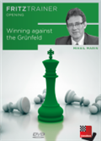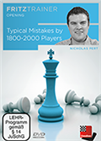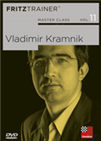Fatigue-induced blunders
 A bit over two weeks from now, the 2021 edition of the World Cup will kick off in Sochi. For the first time, a Women’s World Cup will be played concurrently. The top two finishers in the open tournament and the top three finishers in the women’s event will get a spot in the next edition of the Candidates and Women’s Candidates tournaments respectively.
A bit over two weeks from now, the 2021 edition of the World Cup will kick off in Sochi. For the first time, a Women’s World Cup will be played concurrently. The top two finishers in the open tournament and the top three finishers in the women’s event will get a spot in the next edition of the Candidates and Women’s Candidates tournaments respectively.
The tournament will run from July 12 until August 6, which means the participants will fight for no fewer than 25 days in a row — in what is perhaps the most physically demanding tournament of the year (for those reaching the final stages). It is true that if a player manages to advance to the next stage without needing tiebreaks he or she gets a free day, but it must be noted that the fatigue is not only induced by playing and preparation, as abundant nervous energy is spent by the players in an event that heavily punishes the slightest of errors.
 The Grünfeld is a highly dynamic opening in which Black's position often seems to hang together by a single thread; and yet, this apparently precarious equilibrium appears to be enough to make it entirely viable — up to the highest level.
The Grünfeld is a highly dynamic opening in which Black's position often seems to hang together by a single thread; and yet, this apparently precarious equilibrium appears to be enough to make it entirely viable — up to the highest level.One of the most unequivocal examples of how fatigue can play a big role in the knockout event was seen at the 2015 edition in Baku. In the all-Russian final between Peter Svidler and Sergey Karjakin, a series of unlikely errors by both players — Svidler’s being the most baffling — led to Karjakin taking the title in a 10-game match devoid of draws.
Svidler had won the event four years earlier (in Khanty-Mansiysk 2011), while Karjakin, aged 25 at the time, had already shown his fierce fighting spirit in 2007, when he reached the semifinals and was eliminated by none other than Alexei Shirov.
On his way to the 2015 final, Svidler knocked out Emre Can, Liviu-Dieter Nisipeanu, Teimour Radjabov, Veselin Topalov, Wei Yi and Anish Giri; while Karjakin knocked out Ernes Espinoza, Alexander Onischuk, Yu Yangyi, Dmitry Andreikin, Shakhriyar Mamedyarov and Pavel Eljanov. Svidler and Karjakin entered the event as the 16th and 11th seeds, respectively.

An eventful final match
A 35-year-old Svidler kicked off with what Alejandro Ramirez described as “simply a perfect game”. In the second encounter, Karjakin blundered twice in a row and found himself in the worst possible situation going forward — two points down with two games to go.
White had a pawn for a piece, but still had plenty of defensive resources before blundering with 37.Rb5, a rather aimless move by Karjakin. Svidler responded with 37...Kh8, unpinning the rook, and Karjakin once again blundered, this time with 38.Rd5, which was followed by 38...Nb6 and resigns.
The whole sequence is difficult to understand, since even after 37...Kh8 White could have fought for a draw with the forcing 38.Bxf7 Qxb5 39.Qd5
 On this DVD GM Nick Pert shows you typical mistakes by 1800-200 players. Themes as when to exchange pieces, how to convert an advantage, passive pieces, anticipating your opponents plan, openings and pawn structure are shown throughout the DVD.
On this DVD GM Nick Pert shows you typical mistakes by 1800-200 players. Themes as when to exchange pieces, how to convert an advantage, passive pieces, anticipating your opponents plan, openings and pawn structure are shown throughout the DVD.
Black is still a piece up, but converting this into a win is by no means trivial. Certainly a puzzling couple of misses by Karjakin, a player known for being a staunch defender.

By that point, it seemed more than likely that the match would be decided in three games, as a draw with white against an opponent that came from blundering away a full point was enough for Svidler to take the title. But the fun (for the audience) was only about to begin.
First, Svidler blundered instead of entering a forced line that almost certainly would have led to a draw.
The awful 29.Qd2 fails immediately to 29...Rxf2, as after 30.Qxf2 Black gains the rook on e1 (notice that the queen on h4 is on the same diagonal as the white rook). Svidler played 30.Qc3+ and resigned after 30...d4. In the diagrammed position, the forcing 29.Qxe8 Qxf2+ 30.Kh2 Qxb6 31.Re7+ Kh6 would most likely end in a draw, as the black king is too weak.
Karjakin had survived, and now needed a win with the white pieces to level the score. In a less-than-stellar game by both sides, the 25-year-old from Simferopol managed to tie the overall score with a 56-move victory, which meant the match would be decided in tiebreaks.
Classical games - Annotated by GM Alejandro Ramirez
Select an entry from the list to switch between games
The tiebreaks
A total of six games were played on October 5. The contenders first traded wins with white in the 25-minute games (with 10-second increments); then they traded wins with black in the 10-minute encounters (again with 10-second increments); and finally Karjakin prevailed in the last two games, which were played with a time control of 5 minutes and 3-second increments.
In his column for the Huffington Post, Lubomir Kavalek thus described what had transpired on the event’s final day of action:
In the tie-breaks, both players saw their lead in rapid games disappear. Game 9, the first blitz game, was a comedy of errors and went to Karjakin. He also won the second blitz game and the Cup. Both players looked exhausted and Svidler compared the event to an ancient Roman circus, where the public decides who is going to live and who dies at the end.
 This DVD allows you to learn from the example of one of the best players in the history of chess and from the explanations of the authors (Pelletier, Marin, Müller and Reeh) how to successfully organise your games strategically, consequently how to keep y
This DVD allows you to learn from the example of one of the best players in the history of chess and from the explanations of the authors (Pelletier, Marin, Müller and Reeh) how to successfully organise your games strategically, consequently how to keep y
Much like in the most recent World Championship cycles, both finalists of the World Cup got a spot in the next Candidates Tournament. Karjakin would go on to win the Candidates, thus gaining the right to challenge Magnus Carlsen for the World Championship title in November 2016 — Carlsen won that match, played in New York.
Tiebreak games - Annotated by GM Alejandro Ramirez
Select an entry from the list to switch between games
Links


















 A bit over two weeks from now, the
A bit over two weeks from now, the 




